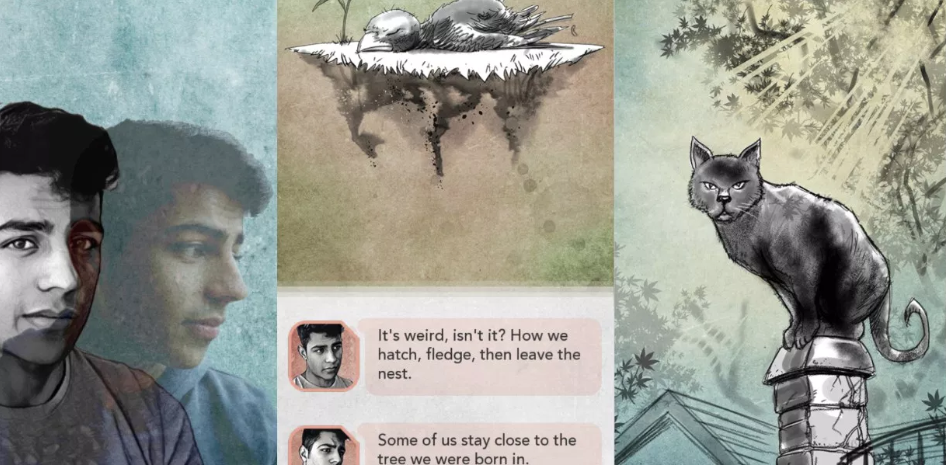|
This week, two separate but connected things were announced.
1: The Office for National Statistics revealed suicide rates for the UK student population. They are alarming, as are the findings that mental health conditions being declared amongst students has risen five fold over the past decade. 2: The nominations were announced for the National Lottery Good Causes Award which is a public vote. Amongst the deserving finalists is The HOAX Project. The HOAX Project was a world-first: a cross-media narrative, health research study. Sounds complicated. Game changers sometimes do take a while to get your head around. And make no mistake, The HOAX Project is a game changer. It was created by the award-winning writer, Ravi Thornton, a response to the suicide of her younger brother, Rob, who, having been diagnosed with schizophrenia, found expression for his mental health issues in his poetry. After Rob took his own life, Ravi turned his poems into a trilogy combining a stage musical, performed at Manchester’s Royal Exchange and Salford's The Lowry, a take-home copy of a graphic novel and access to an app. The app invited users to take part in research aimed at helping people with psychosis in the future. A musical, a graphic novel, an app. Ravi’s own company, Ziggy’s Wish, had developed a system called Applied Narrative Technology, a system which encourages more robust quantitative insights by using the power of storytelling to provide data. The story provides choices. The choices provide data. She worked with the Psychosis Research Unit to frame those choices and created a narrative with Rob’s life as the plot. So, the app studied the impact of HOAX on audiences, including those with lived experience of psychosis-related difficulty, and whether this impact was long-lasting. The answer was a resounding yes. Because of the power of storytelling and the compelling, authentic narrative, data capture was significantly higher than through more traditional research methods, engagement being key to providing the outcomes. It was found that the project significantly reduced stigmatised attitudes around mental health amongst participants. What’s more, it increased mental-health disclosure and help seeking for individuals who experience psychosis. But it’s not over. The HOAX Project, a unique combination of the arts, storytelling, psychology, health, research (and funded from the likes of the Arts Council and the NHS), has some fierce competition from the other finalists in the National Lottery Good Causes Award, not least of which is Hull City of Culture, attracting Goliath size audiences to HOAX’s more modest reach. But if it wins, there’s a financial prize, plus a guest spot on the BBC’s One Show, offering a real opportunity to take HOAX further. It’s important because this is the first time in the 15-year history of the National Lottery Awards that a comics/graphic novel project has made it to the finals. More-so, because of those statistics about suicide in the UK amongst young people. We all know that the arts can enrich lives. The HOAX Project might actually save some. 1) Vote on the National Lottery HOAX Project webpage. 2) Vote by calling the National Lottery HOAX Project phone line: 0844 836 9673 3) Vote on Twitter by tweeting or retweeting the hashtag: #NLAHoax
0 Comments
Leave a Reply. |

 RSS Feed
RSS Feed
